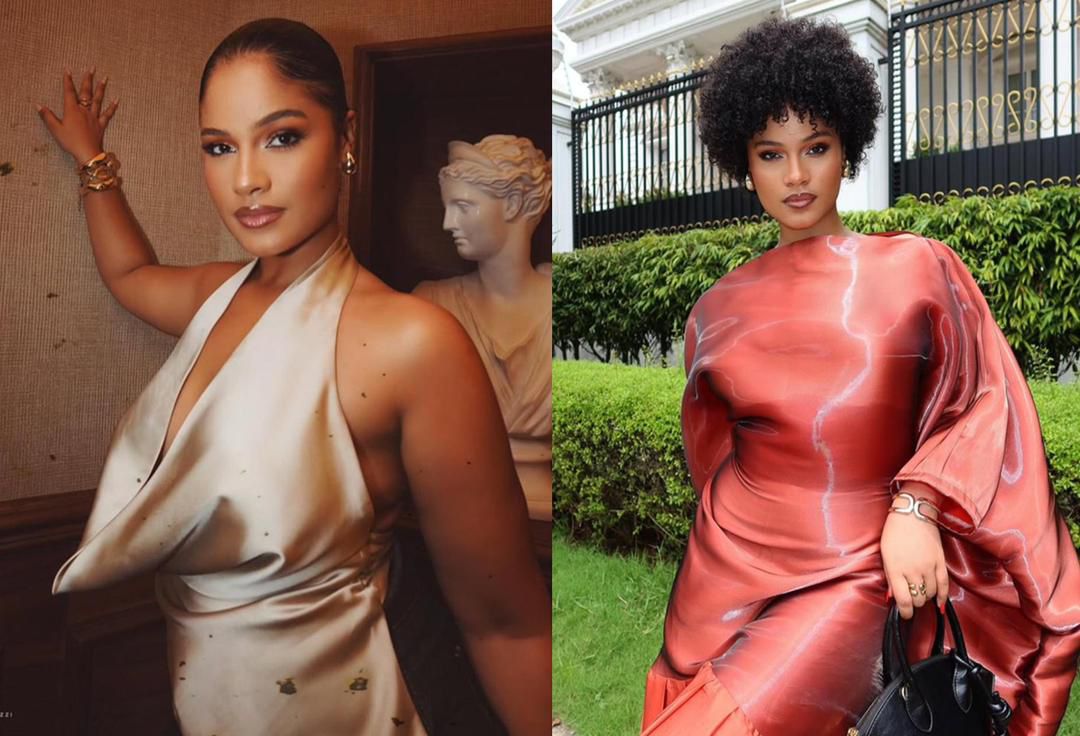
Eucharia Anunobi Warns Christians: Marrying an Unbeliever Is Spiritual Suicide

Nollywood actress turned evangelist, Eucharia Anunobi, has once again stirred conversations across social media with her bold stance on Christian relationships, issuing a strong warning against believers marrying unbelievers. Known for her fiery sermons and outspoken personality, Eucharia declared that such unions are not only spiritually dangerous but also self-destructive. In her words, “How can you as a woman or man of God, a believer operating in ministry, consider marrying an unbeliever? Someone who is spiritually impotent, a spiritual imbecile? You have bought the weapon to destroy yourself by being a believer marrying an unbeliever. Don’t let the sweetness of carnality blindfold you to the true foundation for marriage, which is spirituality and the fear of God. Amos 3:3.”
The actress, who has built a reputation for merging her influence in entertainment with her ministry calling, did not mince words as she delivered the message. To many, it was more than a warning; it was a direct spiritual instruction to Christians who are often caught between the tension of love, attraction, and faith. Quoting the popular Bible verse, “Can two walk together unless they agree?” she emphasized that marriage is not merely about companionship or carnal attraction but about building a foundation rooted in shared spirituality. Her statement comes at a time when conversations about faith and relationships have increasingly become contentious within the church community, especially among young Christians navigating the modern dating scene.
Eucharia’s message immediately triggered widespread reactions. Some Christians applauded her boldness, stating that her words are timely reminders in a generation where many believers are quick to compromise their faith for the sake of romance. These supporters argue that marriage is more than just a physical union but a spiritual covenant, and entering such a covenant with someone who does not share the same faith is like planting seeds in stony ground. For them, her warning is a call back to scriptural foundations where marriage was not just a personal choice but a God-guided decision.
On the other hand, her strong language describing unbelievers as “spiritually impotent” and “spiritual imbeciles” drew criticism. Some social media users accused her of being insensitive and judgmental, arguing that Christianity is supposed to be about love, tolerance, and winning souls, not labeling people with harsh terms. They believe that the message of not being unequally yoked could have been delivered with more grace rather than what they considered to be an “attack on non-believers.” Yet, her defenders insist that the bluntness was intentional, meant to shake believers out of spiritual complacency and highlight the seriousness of the matter.
For Eucharia, however, this is not about public approval or political correctness but about spiritual preservation. In her perspective, love and attraction are fleeting, but the fear of God and shared faith are eternal. She stressed that many believers fall into the trap of carnal pleasure, allowing physical beauty, wealth, or temporary feelings to blind them to the reality that marriage requires more than emotions. According to her, a union without shared spiritual values is like building a house on sand—it may look appealing on the surface, but when the storms come, it will collapse.
Her statement also touches on a broader issue in today’s Christian community: the rising number of believers who compromise biblical standards for the sake of companionship. Many young Christians argue that finding partners within the faith has become increasingly difficult due to societal changes, the pressures of modern living, and the complexities of church culture. This reality, some claim, pushes them to consider unbelievers who may appear more caring, understanding, or financially stable. But Eucharia’s message challenges that logic, insisting that spiritual compatibility should always outweigh temporary satisfaction.
Observers note that this is not the first time the actress-evangelist has sparked conversations with her teachings. Since embracing ministry, she has consistently used her platform to address controversial topics, calling out what she sees as moral decay and spiritual compromise among believers. Her fearless approach often draws both admiration and backlash, but she has remained unwavering in her commitment to preach what she considers undiluted truth. In this case, her tone suggests not just advice but a warning, describing marriage with an unbeliever as literally buying a weapon to destroy one’s own life.
Her words also highlight the deep-seated challenges Christians face in balancing faith and relationships. While the Bible clearly warns against being unequally yoked, real-life situations often make this principle difficult to apply. What happens when a believer falls deeply in love with an unbeliever who treats them better than Christian suitors? What if someone finds themselves in a long-term relationship before embracing faith? These are the tough realities many wrestle with, and Eucharia’s statement forces such individuals to reevaluate whether their personal choices align with their spiritual convictions.
The debate her message has sparked underscores the generational divide in how Christianity is practiced. Older believers often emphasize strict adherence to scripture, while younger generations sometimes advocate for a more flexible, love-driven approach. Yet, Eucharia’s stance reminds everyone that, for her, spirituality is the unshakable foundation of marriage. In her view, compromise in this area is not just unwise but dangerous to one’s destiny. By describing unbelievers as spiritually impotent, she implies that such individuals lack the capacity to lead, protect, or grow with a believer in the spiritual journey of life, making them unfit partners for those committed to God’s work.
Beyond the heated discussions, her statement has also reignited broader reflections on the purpose of marriage within the Christian faith. For believers, marriage is not just about emotional fulfillment but about fulfilling divine assignments together, raising godly offspring, and serving as a reflection of Christ and the church. Without shared spiritual commitment, these purposes can easily be derailed. This is the essence of Eucharia’s warning, urging Christians to look beyond the surface of romance and consider the eternal implications of their choices.
As her message continues to circulate across social media, one thing remains clear: Eucharia Anunobi has once again challenged Christians to evaluate their values and decisions through the lens of faith rather than fleeting emotions. Whether one agrees with her delivery or not, her words have opened up necessary conversations on how believers approach love, marriage, and spirituality in an increasingly complex world. At a time when many are redefining marriage and relationships, her call is a reminder that for Christians, faith remains the ultimate foundation.


